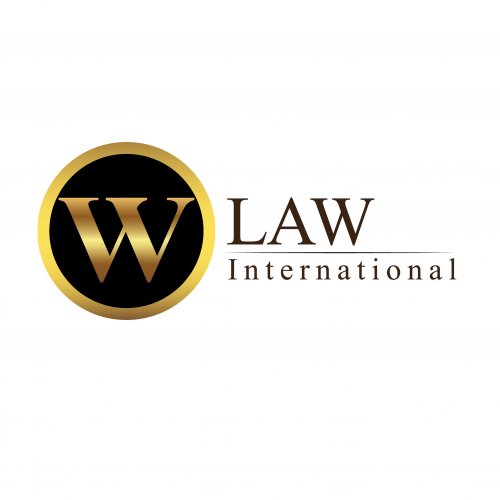Best Estate Planning Lawyers in Thailand
Share your needs with us, get contacted by law firms.
Free. Takes 2 min.
Or refine your search by selecting a city:
List of the best lawyers in Thailand
Thailand Estate Planning Legal Articles
Browse our 2 legal articles about Estate Planning in Thailand written by expert lawyers.
- Estate Planning in Thailand: How to Secure Your Property Investments
- The much admired country of Thailand, where bustling cities intertwine with paradise-esque landscapes, has long captivated global investors with its scintillating real estate prospects. From luxurious coastal villas to chic urban condominiums, property ownership here represents a compelling opportunity to build lasting wealth and secure financial legacies.However, as any discerning... Read more →
- Estate planning goes beyond wills
- Estate planning is an important if not essential task that everyone should be concerned about. This is especially true if you are married or have children, if you own a business or hold substantial assets that you want to protect if you pass away or are incapacitated, particularly in today’s... Read more →
About Estate Planning Law in Thailand
Estate Planning in Thailand involves the preparation and organization of a person's assets and financial affairs to manage them efficiently during their lifetime and upon their death. This area of law encompasses wills, trusts, inheritance laws, and related estate management strategies. Due to unique cultural and legal customs, estate planning in Thailand requires careful consideration of Thai laws to ensure that assets are distributed according to the individual's wishes while complying with relevant legal frameworks.
Why You May Need a Lawyer
Individuals may seek legal advice in estate planning for several reasons:
- Complex Assets: When you have complex assets, including businesses or properties in different countries.
- Blended Families: Navigating estate planning when there are children from previous marriages or relationships.
- Non-Thai Nationals: Foreigners residing in Thailand who need to ensure their estate plan complies with Thai law.
- Minimizing Taxes: Structuring the estate to minimize tax liabilities for heirs.
- Conflict Resolution: Preventing or resolving potential disputes among heirs or beneficiaries.
Local Laws Overview
Key aspects of local laws relevant to estate planning in Thailand include:
- Civil and Commercial Code: This code provides the legal framework for wills and intestate succession (dying without a will).
- Foreign Ownership Restrictions: Foreign nationals have restrictions on property ownership in Thailand, which can impact estate planning.
- Forced Heirship: Thai law dictates mandatory inheritance shares for some family members, which can overrule contrary wishes in a will.
- Probate Process: The legal process for validating a will and distributing the estate according to Thai law.
- Trusts: Although not commonly used as in Western jurisdictions, trusts can be part of estate planning under certain conditions.
Frequently Asked Questions
What happens if I die without a will in Thailand?
If you die without a will, your estate will be distributed according to Thailand’s statutory intestate succession laws, which designate specific portions of your estate to relatives in a fixed order, such as parents, spouse, and children.
Can foreigners create a will under Thai law?
Yes, foreigners can create a will under Thai law, but it must be done in accordance with local legal requirements. It is advisable to consult a lawyer familiar with both Thai and international estate planning laws.
What are the legal requirements for a valid will in Thailand?
A valid will in Thailand must be written, dated, and signed by the testator in the presence of at least two witnesses who also need to sign the document.
How is a will executed in Thailand?
A will is executed through the probate process in Thai court, where the court verifies its validity and oversees the distribution of assets according to the will’s terms.
Are trusts commonly used in Thailand for estate planning?
Trusts are not as commonly used in Thailand as in some other countries due to legal restrictions; however, they can be used in certain cases, especially involving international estate planning.
How can I reduce inheritance tax in Thailand?
While Thailand currently does not impose inheritance tax, estate duty may apply to foreign jurisdictions where your heirs are residents. Effective estate planning can help minimize such taxes.
Can I disinherit a family member in Thailand?
Although you can express wishes to limit inheritance in a will, Thai law enforces certain mandatory shares for close relatives (forced heirship). Legal advice is recommended to navigate this complex issue.
Do prenuptial agreements affect estate planning?
Yes, prenuptial agreements can influence estate division, especially regarding marital property division, and should be integrated into the estate planning process.
Can I name a guardian for my minor children in my will?
Yes, appointing a guardian for minor children can be included in your will, and this is legally recognized in Thailand.
How often should I update my estate plan?
It is advisable to review and update your estate plan whenever there is a major life event, such as marriage, divorce, birth of a child, or significant asset acquisition or disposal.
Additional Resources
For additional information and assistance, consider the following resources:
- Thai Bar Association: They provide resources and guidance related to legal matters, including estate planning.
- Department of Lands, Ministry of Interior: Useful for issues related to property ownership and transfer.
- Law Society of Thailand: A professional organization that can help locate qualified lawyers specializing in estate planning.
- Thai Chamber of Commerce: They provide guidance on establishing and managing businesses that may be part of an estate.
Next Steps
If you require legal assistance in estate planning, consider the following steps:
- Identify Your Needs: Clearly outline what you need assistance with, such as drafting a will, creating a trust, or resolving disputes.
- Consult a Lawyer: Seek a lawyer with expertise in Thai estate law, perhaps through recommendations from professional associations or known legal networks.
- Prepare Documentation: Gather all relevant documents and information about your assets, liabilities, and family situation for your lawyer’s review.
- Review Regularly: Ensure that your estate plan is reviewed at regular intervals or when major life changes occur.
Taking these steps will help ensure that your estate plan aligns with your wishes and complies with Thai laws, providing peace of mind for you and your loved ones.
Lawzana helps you find the best lawyers and law firms in Thailand through a curated and pre-screened list of qualified legal professionals. Our platform offers rankings and detailed profiles of attorneys and law firms, allowing you to compare based on practice areas, including Estate Planning, experience, and client feedback.
Each profile includes a description of the firm's areas of practice, client reviews, team members and partners, year of establishment, spoken languages, office locations, contact information, social media presence, and any published articles or resources. Most firms on our platform speak English and are experienced in both local and international legal matters.
Get a quote from top-rated law firms in Thailand — quickly, securely, and without unnecessary hassle.
Disclaimer:
The information provided on this page is for general informational purposes only and does not constitute legal advice. While we strive to ensure the accuracy and relevance of the content, legal information may change over time, and interpretations of the law can vary. You should always consult with a qualified legal professional for advice specific to your situation.
We disclaim all liability for actions taken or not taken based on the content of this page. If you believe any information is incorrect or outdated, please contact us, and we will review and update it where appropriate.
Browse estate planning law firms by city in Thailand
Refine your search by selecting a city.

















